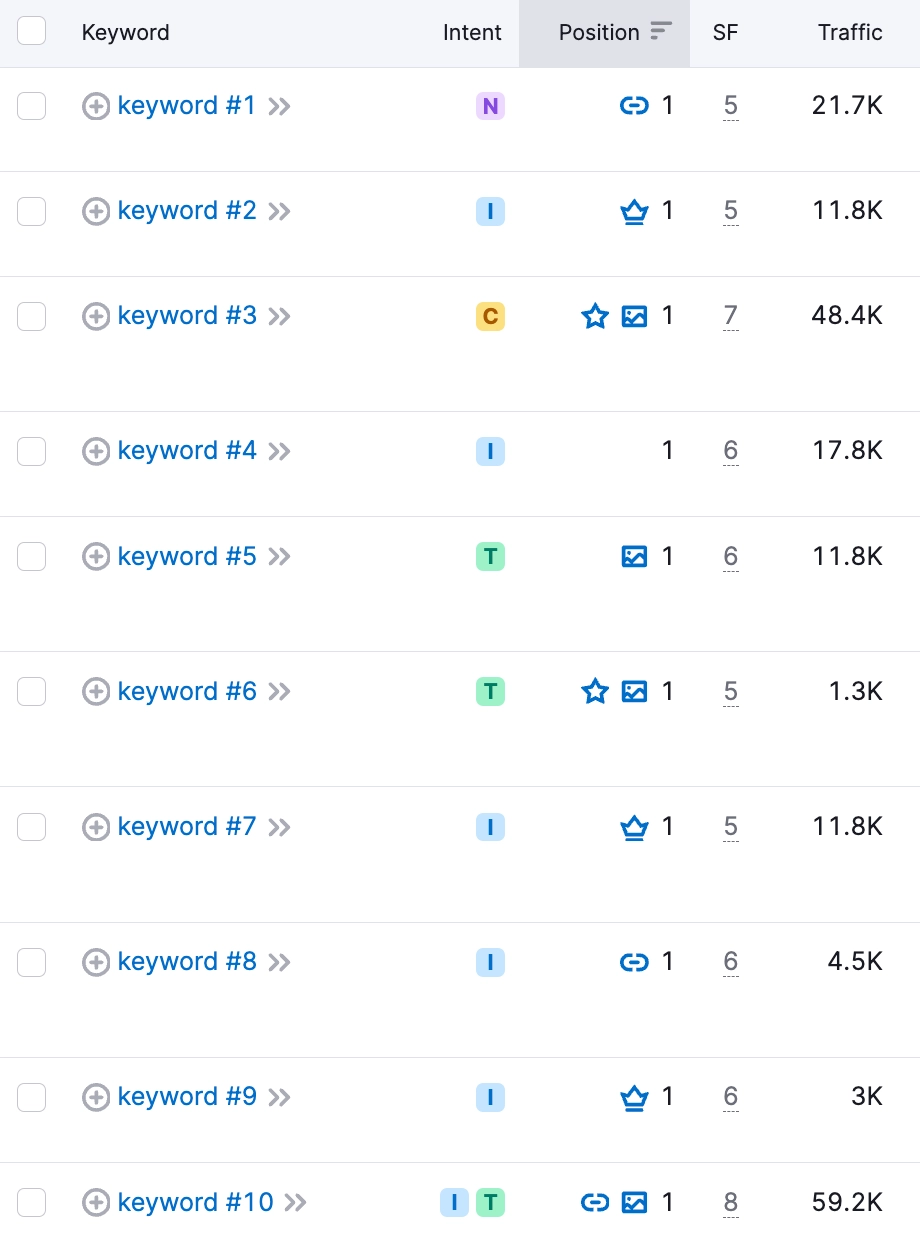Improving organic traffic is a crucial long-term approach to growing a website or blog. Although it may require some time, search engine optimization (SEO) can offer much higher returns than paid advertising, guest blogging, and virtually any other online marketing technique. Unfortunately, there are no quick routes to mastering how to increase organic traffic.
To gain more traffic from search engines, you must comprehend how they operate and develop a strategy. It is an excellent start to plan what kind of content to create and monitor the performance of your posts. However, there are other less-recognized methods that you should not disregard. There are many ways to increase your website ranking and in this post, I am going to share 10 basic and free methods for improving organic reach
1. Check Your Current Search Ranking
Before you can start improving your website’s search ranking, it’s important to know where you currently stand in Google’s search results. Install Google Analytics and check Google Search Console. It’s important to track your current progress and success. Analyze all aspects of your website to increase traffic.
Google Analytics
Google Analytics is a free tracking tool. It can be very complex, but there are many reports with just a few clicks that could be very helpful. Using the Channels report will show you how your organic traffic compares to any other traffic to your website. You can easily dig a little deeper by clicking on “Organic Search” in this report to see which pages users find on Google. Unfortunately, most keywords appear as “not provided”. This is where you need to use Google Search Console.
Google Search Console
Although Google Analytics doesn’t provide you with many specific keywords people are searching for, Google Search Console will. Google Search Console will show you the details of your organic search ranking. This means you can see how each page on your site ranks for specific keywords that users have searched for on Google.
2. Keyword research
Now that you understand where your pages rank for certain key terms, you can refine and define a keyword list on which you can base your website’s content around. If you target the right keywords for each page of your website based on what you’re trying to sell, the message you’re trying to communicate, and where you expect to meet the customer on their buying journey, you’ll see a vast improvement in your organic search rankings.
3. Optimise Pages for Users
By using buyer personas, a website is two to five times more effective and easier to use by targeted users. By creating your content with a human being in mind, rather than a search engine, you’ll stand a far greater chance of your content being consumed and shared, creating backlinks that will increase your search rankings. Always consider if your copy and content are digestible, conversational, and suitable for a human audience.
4. Write quality content
Write quality SEO content that also includes keywords and synonyms that allow your website to be found by Google’s top results and other search engines. Good content appeals to humans and as a result, will help you rank better in search engines. Good copywriting that incorporates keywords both sparsely and naturally is the key to boosting your organic rankings – allowing you to humanize your brand while creating a better customer experience.
5. Improve your page load time
Improving your page load time is essential for two reasons. Firstly, a slow-loading website affects your site’s organic ranking as Google detects the crawling pace. Secondly, it also impacts customer conversion rates and increases abandonment rates. Slow page load time can cost a business $1.6 billion in lost sales annually, as calculated by Amazon. Research indicates that 40% of visitors will leave a site if a page takes more than 3 seconds to load, while 80% will not return to a slow-loading website. Conversely, visitors tend to stick around if the page loads quickly. Therefore, optimizing your website’s load time is crucial, and you can begin by checking your website’s load time and upgrading your site’s speed. Optimizing images is also an excellent way to accelerate load time.
6. Optimize Page Titles
The HTML title tag is a valuable piece of metadata for your page and should be correctly structured. The title tag should serve as a concise description of your page’s content – and no two title tags should ever be the same. To write a title tag that will help boost your page’s organic search ranking, you should keep it under 70 characters, with the most relevant or primary keywords near the start.
7. Write Quality Meta Descriptions
A meta description is a short summary of the content on a web page. A well-crafted meta description should be between 150 and 160 characters and should include a call to action. Although meta descriptions don’t affect the search rankings directly, they play an important role in driving organic traffic. Google uses click-through rate (CTR) to evaluate the quality of a search result, so a higher CTR can signal to Google that your page is relevant and valuable. While there’s no guarantee that Google will display your meta description, it’s worth the effort to write a compelling one.
8. Give meaning to your URLs
Optimizing your page URLs for SEO is crucial as keywords in the URL contribute to your page’s ranking. Having short and descriptive URLs can also aid in link building and improve user engagement. Just like your site visitors, search engines rely on the URL to determine the page’s content.
When creating your URL, try to incorporate at least one relevant keyword without overdoing it, as this may result in a spam flag and negatively impact user experience. Instead, focus on using semantic URLs that are easily understandable and accurately describe the page’s topic and content.
By creating unique and memorable descriptive URLs, you increase the likelihood of users remembering, sharing, and linking to your page. On the other hand, confusing number sequences or irrelevant keyword stuffing can harm your SEO efforts. Therefore, it’s crucial to ensure that your URLs are user-friendly and optimized for search engines.
9. Proper use of ALT tags
Currently, images are being featured in almost 38% of Google’s search engine results pages (SERPs), and this trend is expected to continue growing. Image alt text can provide numerous benefits for you, including turning your images into hyperlinked search results that can appear in Google Images or as image packs. Image packs are distinct search results that display a row of horizontal image links, which can appear in any organic position. However, your image alt text must be both descriptive and representative of the content on the webpage it’s supporting. Essentially, your alt text must accurately describe the image’s content and relate to the web page’s topic, ensuring that it provides the greatest benefit for your website’s SEO.
10. Diversify your anchor list
Anchor text is the clickable text within a hyperlink that guides users to the linked page. It plays a significant role in improving your website’s search engine rankings and user experience. Anchor text helps Google determine what the linked page is all about. Use variations of target keywords relevant to the page you’re linking to. Avoid using “click here” and exact match keywords, instead use close variations to rank better for a broader selection of keywords. Improving your organic search rankings takes time, but by following best SEO practices, you can improve your chances of ranking higher on Google.
Conclusion
Achieving a high organic ranking requires ongoing effort and attention. Several markers contribute to improving your business’s SEO ranking, and neglecting any of them is not an option. The key markers include producing fresh, high-quality content with relevant keywords, a good layout, and readability. Using images can also attract the audience’s attention, and optimizing them can improve page load speed. Additionally, adding outbound links to the text and crafting a compelling meta-description is essential. It is equally important to complete the correct anchor list, as this can significantly impact your organic ranking. By focusing on these key markers and consistently paying attention to them, you can improve your website’s organic ranking and attract more traffic.




